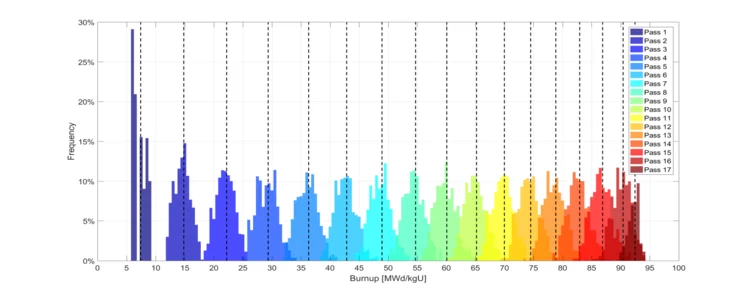Assessment of innovative reactor designs in PSI
Between the years 2015 and 2019, PSI coordinated a project investigating the pebble bed high temperature gas-cooled (HTGR) reactor aside with molten salt reactor (MSR) concepts and the use of thorium fuel. The project involved different groups from the ETH domain and the main purpose is to build-up the specific know-how in Switzerland that is necessary to provide in-depth information to decision makers and identify research needs for the future. Several key aspects of both HTGR and MSR reactors were addressed in this research project. These include economic and accident phenomenology studies of the HTGR, fuel cycle optimization of both MSR and HTGR, as well as a study on waste volume reduction of the pebble bed reactors.
Reconstitution de l’accident nucléaire de Fukushima
Des chercheurs de l’Institut Paul Scherrer (PSI) participent à un projet international, dont l’objectif est de reconstruire les différents évènements qui se sont produits à l’intérieur du réacteur de la centrale nucléaire de Fukushima Daiichi, lors de l’accident nucléaire de mars 2011. La reconstitution de l’état final des curs des réacteurs devrait aider l’exploitant de la centrale TEPCO (Tokyo Electricity Company) à préparer les travaux de décontamination dans l’enveloppe protectrice du réacteur. L’exercice pourrait par ailleurs servir à affiner les programmes informatiques de simulation des accidents nucléaires.
Rétention d'iode radioactif en cas d'accident grave de centrale nucléaire
Les chercheurs de l'institut Paul Scherrer PSI ont développé un procédé efficace de filtrage de l’iode radioactif. Après la fusion du cur à la suite d'une avarie au sein d'une centrale nucléaire, ce filtre élimine à peu près totalement l’iode contenu dans l'air pollué par les substances radioactives avant qu'il ne soit rejeté dans l'environnement. Pour que la méthode puisse être mise en uvre partout dans le monde, PSI et CCI-Industries AG (Balterswil/TG) ont récemment signé un contrat de licence d'exploitation de ce procédé breveté du PSI.




